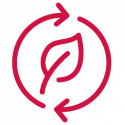

Orange's new strategic plan will reinforce this strong social commitment. It provides for the deployment in all the Group's countries of a new concept launched in 2019 in Tunis and then in Dakar: the Orange Digital Centers.
Françoise Cosson
The Orange Foundation has a strong ambition for the Group: to make digital technology a factor for equal opportunity in the social and professional integration of individuals in precarious situations. In the 30 countries where it operates, it offers digital education and training programs focused on the employability of women and young people. In addition to this commitment, the Foundation carries out solidarity actions in areas that are vital to particularly vulnerable populations: access to water, health, education and, in some territories, culture.
What role does the Foundation play in achieving the Group’s ambition for digital equality?
Orange Foundation sees one of its prime purposes as making digital technology a factor for equal opportunity in the 30 countries in which it operates. This ambition, which is part of the Group’s strategy, contributes more generally to its corporate social responsibility commitment: supporting and fostering the long-term economic and social development of the territories in which it operates.
To this end, the Orange Foundation takes action to enable the integration of vulnerable populations, through digital education and training. In recent years, it has focused its action on two priority areas: the professional integration of young people and the empowerment of women through digital technology. The large-scale programs it deploys in all countries use digital technology to:
- Help the poorest schoolchildren access school learning, train and motivate unemployed young people, and prepare them for the jobs of the future.
- Giving or restoring financial autonomy to women without qualifications or employment.
Are the Orange Foundation's programs deployed in the same way across all its regions?
Our action is tailored by region and country, as the topographies, access to connectivity, socio-economic situation and security context are all distinct. This is why, in each country, we work in close connection with local players, who know the beneficiaries whom they send to the Foundation: Ministries, Public Institutions and NGOs in Africa; local chapters (Missions Locales) and Pôle Emploi (the Unemployment Office) in France. Each of these players takes part in shaping the educational modules and the organization of training courses. In each country, Orange’s local teams are also committed to supporting the initiatives: many volunteer employees help make the training courses reality and pass on their knowledge and skills to our beneficiaries.
What types of actions do you carry out and how do you adapt them to different contexts?
There are three programs aimed at young people:
- The 105 solidarity FabLabs opened in 17 countries across Europe and Africa-Middle East give disadvantaged youth or young school dropouts the chance to put together a project in digital co-design and co-construction workshops using 3D printers, digital milling machines and laser cutters. This free training course then becomes a springboard to another course or job.
- In France, as part of a program driven by skills sponsorship, Orange employees are training young people and women at 7,800 free workshops in digital. They teach them how to use digital technology - online CVs, social media use, e-reputation - to find a job.
- In Africa, we have opened 820 digital schools in remote areas in 16 countries, where children have no books, notebooks or pencils. The Foundation equips schools free of charge with kits consisting of tablets connected to a local mini-server and in charge of the educational content necessary to acquire the essential basics and the curriculum of the country.
For women, you have launched digital houses: what party do they play, and how do they work?
The 250 digital houses opened in 20 countries across Europe and Africa-Middle East, including 101 in France, help unskilled and unemployed women become financially independent through a 6-12 month digital training course. Depending on the needs identified in each country, women learn computation skills, basic computer skills, job-seeking or job-creation skills on the Internet, basic software skills, etc. Each woman works on building her own personal project. She is supported as she seeks paid employment. Each year, the Foundation selects a dozen “special picks” from its personal activity creation projects, and lends them its supports. In many cases, these projects enable women not only to become financially independent, but also to create jobs within their village to support other families. It's a virtuous circle.
What are the success factors for these digital houses?
Looking back now, it becomes clear that what was intended as a place of digital training also fostered social integration, as the women shared their experiences and personal stories in all the problems they faced: social, family-related and professional. The success of these digital houses is based on two factors: the support women receive on a daily basis from the trainer and mediator (NGO, association) to set up their project and find a job; the involvement of the local Orange team, which brings consistency to the project and contributes to the final success.
How would you sum up the Foundation's actions to date?
The figures speak for themselves: in 2019, we supported nearly 50,000 young people and women trained in digital technology in France, 200,000 schoolchildren trained on our digital tablets in Africa and 5,000 women employed in our digital houses. We are very close to the Ministries in Africa, and town halls and local authorities in France, with which we also work on joint projects for solidarity Third Places , where the Foundation will provide Internet access and digital training.
Orange’s new strategic plan will strengthen this strong societal commitment. It plans to roll out a new concept in all Group countries, launched in 2019 in Tunis and then in Dakar: the Orange Digital Centers. These places of digital inclusion and innovation will put young people and women on the road to vocational education, training and entrepreneurship.
Projects by women trained in a digital home, supported by the Orange Foundation's Coups de Cœur program
In Tunisia, Ghzela Bayar, a 59-year-old, opened a weaving workshop and hired 2 employees. She plans to buy a 2nd loom and recruit 1 other woman.
In the DRC, Julienne Zawadi, 26, set up an egg shop in her village.
In Senegal, Penda Mbaye, age 23, started a small office services and printing company and hired 2 women.
In Spain, Matilde Manzano Salazar, age 46, created her e-commerce site from a lingerie line she designed.
In Poland, Anna Wojcik, 32, will create and sell an anti-stress object to relieve the breathing problems that come with anxiety attacks.





